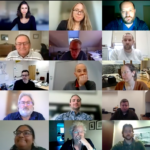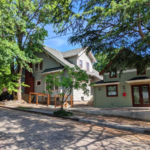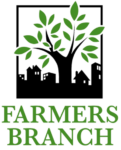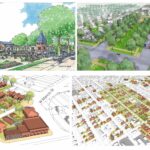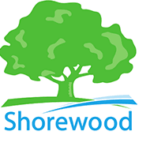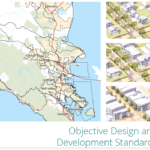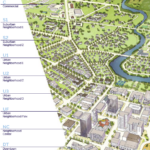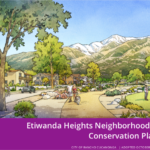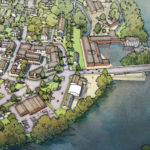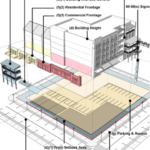FBC 301: Formulating, Adopting and Administering a Code, Clearwater, FL
Summary
FBC 301: Formulating, Adopting and Administering a Code
Wednesday – Thursday, December 6-7, 2017
Pinellas County Engineering & Finance BuildingLearning Center — Fourth Floor
14 S. Ft. Harrison Ave.
Clearwater, FL 33756
United States
FBC 301 focuses on formulating, adopting, and administering a form-based code. The course will offer an in-depth look at the relationship between the comprehensive plan and a form-based code, the mechanics of code adoption, the advantages and disadvantages of mandatory, parallel and floating-zone codes, and ways to avoid common pitfalls in the drafting and administration of form-based codes.
Instructors will explain how to structure the process, including what must happen before, during, and after the code is drafted, what to keep and what to discard from an existing conventional code, how to relate the form-based code to the existing regulatory framework in a specific municipality, how to insulate a FBC against potential legal challenges, and issues of post-adoption implementation and project review. The course will examine specific examples and lessons learned from experience working with form-based codes and will include a hands-on exercise in code implementation.
Click the tabs above to see agenda and instructors.
NOTE: The one-day class ABCs of Form-Based Codes — or FBC 101 on-line — is prerequisite for this class.
FBC 301 is part of FBCI’s three-course series. It combines with FBC 101 (ABCs of Form-Based Codes) and FBC 201 (Urban Design) to complete a thorough instruction in the discipline of form-based coding. FBCI awards a certificate to all those completing the three-course series.
Lodging
Residence Inn by Marriott Clearwater Downtown
940 Court St.
Clearwater, FL 33756
Phone: (727) 562-5400
Comfort Suites Clearwater – Dunedin
1941 Edgewater Drive
Clearwater, FL 33755
Phone: (727) 489-5000
Chart House Suites on Clearwater Bay
850 Bayway Blvd.
Clearwater, FL 33767
Phone: (727) 449-8007
Quality Hotel Beach Resort
655 S. Gulfview Blvd.
Clearwater Beach, FL 33767
Phone: (727) 442-7171
Ramada Limited Clearwater Hotel and Suites
2061 Gulf to Bay Blvd.
Clearwater, FL 33765
Phone: (727) 446-8007
Agenda
Click here to download a copy of the agenda
DAY ONE — Wednesday, Dec. 6, 2017
|
8:30 – 9:00 AM |
Light Breakfast and Sign-In |
|
9:00 – 9:15 AM |
Welcome and Introductions |
|
9:15 – 9:45 AM |
Structuring the Coding Process — Mary Madden, Ferrell-Madden
Topics covered in this session include: the overall coding process; what must occur before and after actual code drafting; the critical role of the urban design plan underlying the code; how the FBC fits into the overall regulatory framework of the municipality; and combining zoning, street design and subdivision regulations into a legally defensible framework. |
|
9:45 – 10:45 AM |
Comprehensive Planning and Form-Based Codes — Bill Spikowski, Spikowski Planning Associates
Comprehensive plans articulate a community’s broad vision and can also set aspirations for future form and character of neighborhoods and corridors. This session will explore methods for using comprehensive planning to “set the stage” for future form-based codes by identifying desired urban forms and providing the policy and legal framework within which form-based codes can be adopted. |
|
10:45 – 11:00 AM |
Break |
|
11:00 AM – 12:15 PM |
Code Mechanics Part 1: Mandatory Form-Based Codes — Bill Spikowski and Mary Madden
Topics covered in this session include the three major methods of integrating form-based codes into existing development regulations; advantages and disadvantages of mandatory codes; mandatory code format variations; and examples of mandatory codes in place today. |
|
12:15 – 1:15 PM |
Lunch |
|
1:15 – 1:45 PM |
Adopting Effective Form-Based Codes — Nancy Stroud, Lewis Stroud & Deutsch
Topics covered in this session include: legal processes for adopting the code; preparing the community to apply it; ensuring that it is legally defensible and delivers what it promises; and managing expectations. |
|
1:45 – 2:45 PM |
Code Mechanics Part 2: Parallel (Optional) and Floating Zone Codes — Bill Spikowski and Mary Madden
Topics include the advantages and disadvantages of parallel (optional) codes and floating-zone codes; format variations and examples of parallel (optional) and floating-zone codes, including legal issues of authority, defensibility and nonconformity. |
|
2:45 – 3:00 PM |
Break |
|
3:00 – 3:45 PM |
Making Things Easier for DevelopMENT, Rather than DevelopERS – Frank Starkey, People Places, LLC
Unlike the historic growth of cities, today’s extensive regulations require professional developers and a bevy of consultants. This impacts urban form, economics, democratic participation and the government’s ability to protect the common good. Form-based codes are a key tool for re-democratizing the buildings of towns and cities. |
|
3:45-4:30 PM |
Questions and Answers — All Instructors |
|
5:00 PM |
Day 1 Meetup — All Instructors and Participants
Unwind with your colleagues at Clear Sky on Cleveland at 418 Cleveland Street, Clearwater, FL 33755. First round is on Pinellas County Planning Department! |
DAY TWO — Thursday, Dec. 7, 2017
|
8:30 – 9:00 AM |
Light Breakfast |
|
9:00 – 9:50 AM |
Tips on Code Drafting— Nancy Stroud
Form-based codes contain certain key elements not found in conventional zoning, but these codes must still follow all legal requirements for zoning and must be clear to the public and to code users and administrators. This session will describe best practices in code-writing generally, including the proper use of definitions, the need for due process for participants, consistency with other chapters and sections of the municipal code, and internal consistency within the FBC. Also discussed will be how to avoid common drafting mistakes. |
|
9:50 – 10:30 AM |
The Evolving Practice of Form-Based Coding — Mary Madden
Like any good set of policies, form-based codes continue to evolve as localities find new applications and opportunities. While the basic principles remain consistent, recent advances in form-based coding practice are broadening their appeal. In this session, participants will learn about these cutting-edge adaptations and the emerging issues that they may raise. |
|
10:30 – 10:45 AM |
Break |
|
10:45 – 11:30 AM |
Implementing Form-Based Codes – Nancy Stroud
Form-based codes can increase predictability and reduce approval times if properly incorporated into the development review legal process. This session will explore pre- and post-adoption issues, building organizational capacity, legal authority for implementation and enforcement, and additional elements of development review. |
|
11:30 AM – 12:30 PM |
Exercise: Project Review Under a Form-Based Code – Mary Madden
This session provides participants with a real-world exercise of reviewing a project proposed for a specific site under a form-based code, including interactive discussion of alternative approaches to meeting code standards and a discussion of the project that actually was approved. |
|
12:30-1:30 PM |
Lunch |
|
1:30-2:30 PM |
Project Review Exercise (Cont.) |
|
2:30 – 3:15 PM |
Transportation Planning to Support Form-Based Codes – Bill Spikowski
This session will discuss how to coordinate the design of local streets and regional street networks to support compact development. Examples include ITE/CNU’s Designing Walkable Urban Thoroughfares, Florida Greenbook TND chapter, Florida DOT’s complete streets initiative, and El Paso, TX thoroughfare plan update. |
|
3:15–4:00 PM |
Interactive Panel: Keeping or Replacing Conventional Code Provisions — All Instructors
In this session, instructors will discuss which conventional code components should be carried over during a code overhaul, which provisions FBCs typically discard and what is generally retained. |
|
4:00 – 5:00 PM |
Questions and Answers — All Instructors |
|
5:00 PM |
Adjourn |
Instructors
FBCI draws upon national experts, including urban designers and planners with broad experience in all aspects of form-based coding. We have assembled an excellent group for the class in Lansing.
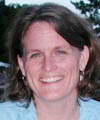 Mary Madden has nearly 20 years of experience in the fields of urban planning and design, community development, and historic preservation at the federal, state, and local levels. Her recent projects have been completed in a variety of diverse locales, including: Peoria, Illinois; Memphis, Tennessee; Farmers Branch, Texas; Prince George’s County, Maryland; Marquette, Michigan; Arlington, Virginia; and Fayetteville, Arkansas. Ms. Madden frequently speaks and writes on the topics of urban design and form-based codes. She co-authored “Place Making with Form-Based Codes” for the September 2006 issue of Urban Land magazine, was a contributor to the National Charrette Institute’s 2008 Best Practices Report, and was a contributor to the APA/CNU publication Codifying New Urbanism: How to Reform Municipal Land Development Regulations. Before joining Ferrell Madden LLC in 2001, Ms. Madden served in several positions at the U.S. Department of Housing and Urban Development. Earlier in her career, she was the co-director of the Mayors’ Institute on City Design.
Mary Madden has nearly 20 years of experience in the fields of urban planning and design, community development, and historic preservation at the federal, state, and local levels. Her recent projects have been completed in a variety of diverse locales, including: Peoria, Illinois; Memphis, Tennessee; Farmers Branch, Texas; Prince George’s County, Maryland; Marquette, Michigan; Arlington, Virginia; and Fayetteville, Arkansas. Ms. Madden frequently speaks and writes on the topics of urban design and form-based codes. She co-authored “Place Making with Form-Based Codes” for the September 2006 issue of Urban Land magazine, was a contributor to the National Charrette Institute’s 2008 Best Practices Report, and was a contributor to the APA/CNU publication Codifying New Urbanism: How to Reform Municipal Land Development Regulations. Before joining Ferrell Madden LLC in 2001, Ms. Madden served in several positions at the U.S. Department of Housing and Urban Development. Earlier in her career, she was the co-director of the Mayors’ Institute on City Design.
 Frank Starkey is co-founder (with his brother, Trey) of Longleaf, a 568-acre Traditional Neighborhood Development just northwest of Tampa, Florida. From 2005 through 2012 Frank and Trey oversaw planning, entitlements and marketing of Starkey Ranch, a 2,500-acre multi-use development in Florida. Frank is the founder of People Places, LLC, a real estate and development company, which is pursuing infill and redevelopment opportunities in various towns in Florida. He has served as Chairman of the Board of The Seaside Institute and as president of the National Town Builders Association. He was the first Developer in Residence at University of Miami’s Masters in Real Estate + Urbanism (MRED+U) program. Frank holds undergraduate and professional degrees in architecture from Rice University, is CNU Accredited, and an active member of ULI and Leadership Florida.
Frank Starkey is co-founder (with his brother, Trey) of Longleaf, a 568-acre Traditional Neighborhood Development just northwest of Tampa, Florida. From 2005 through 2012 Frank and Trey oversaw planning, entitlements and marketing of Starkey Ranch, a 2,500-acre multi-use development in Florida. Frank is the founder of People Places, LLC, a real estate and development company, which is pursuing infill and redevelopment opportunities in various towns in Florida. He has served as Chairman of the Board of The Seaside Institute and as president of the National Town Builders Association. He was the first Developer in Residence at University of Miami’s Masters in Real Estate + Urbanism (MRED+U) program. Frank holds undergraduate and professional degrees in architecture from Rice University, is CNU Accredited, and an active member of ULI and Leadership Florida.
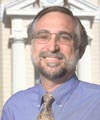 Bill Spikowski is a veteran advisor to local governments and a pioneer in the development of form-based codes. He’s prepared community plans, redevelopment plans, and codes for cities and counties that aren’t willing to settle for today’s sprawling development patterns. He’s become an expert in using form-based codes to translate bold visions of the future into an integral part of local regulations. Bill is a frequent lecturer on innovative planning and coding techniques and is an officer and founding board member of the Form-Based Codes Institute. He is a regular instructor at FBCI workshops across the country. Prior to forming his consulting firm in 1992, Bill served as growth management director for Lee County, Florida. He also serves on the Fort Myers Planning Board and is a co-founder and officer of the Calusa Land Trust & Nature Preserve. He is a Fellow of the American Institute of Certified Planners.
Bill Spikowski is a veteran advisor to local governments and a pioneer in the development of form-based codes. He’s prepared community plans, redevelopment plans, and codes for cities and counties that aren’t willing to settle for today’s sprawling development patterns. He’s become an expert in using form-based codes to translate bold visions of the future into an integral part of local regulations. Bill is a frequent lecturer on innovative planning and coding techniques and is an officer and founding board member of the Form-Based Codes Institute. He is a regular instructor at FBCI workshops across the country. Prior to forming his consulting firm in 1992, Bill served as growth management director for Lee County, Florida. He also serves on the Fort Myers Planning Board and is a co-founder and officer of the Calusa Land Trust & Nature Preserve. He is a Fellow of the American Institute of Certified Planners.
 Nancy Stroud is a planning and development lawyer in Florida primarily representing local governments in efforts to create walkable and vibrant communities. She is a recognized expert in the preparation and implementation of form based codes. She was the legal consultant in the award-winning team that created the Miami21 form based code, winner of the 2010 Dreihaus Form-based Codes Award (Paul Crawford Distinction for a Ground Breaking Code), and the 2011 American Planning Association National Planning Excellence Award for Best Practice. Nancy writes and lectures on community development issues, and is co-author of a leading law school treatise Planning and Control of Land Development. She graduated from the University of North Carolina with a law degree and master of regional planning, and is certified by the American Institute of Certified Planners.
Nancy Stroud is a planning and development lawyer in Florida primarily representing local governments in efforts to create walkable and vibrant communities. She is a recognized expert in the preparation and implementation of form based codes. She was the legal consultant in the award-winning team that created the Miami21 form based code, winner of the 2010 Dreihaus Form-based Codes Award (Paul Crawford Distinction for a Ground Breaking Code), and the 2011 American Planning Association National Planning Excellence Award for Best Practice. Nancy writes and lectures on community development issues, and is co-author of a leading law school treatise Planning and Control of Land Development. She graduated from the University of North Carolina with a law degree and master of regional planning, and is certified by the American Institute of Certified Planners.
To see all FBCI instructors, please visit our website, www.formbasedcodes.org
Registration Fees
Private
Early Bird $575
After Nov. 20 $650
Public
Early Bird $425
After Nov. 20 $550
Discounts will also available for large-group registrations.
Contact FBCI for more information.
Thanks to our great sponsors!


